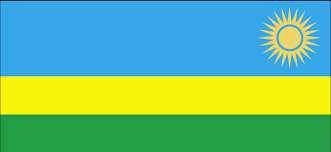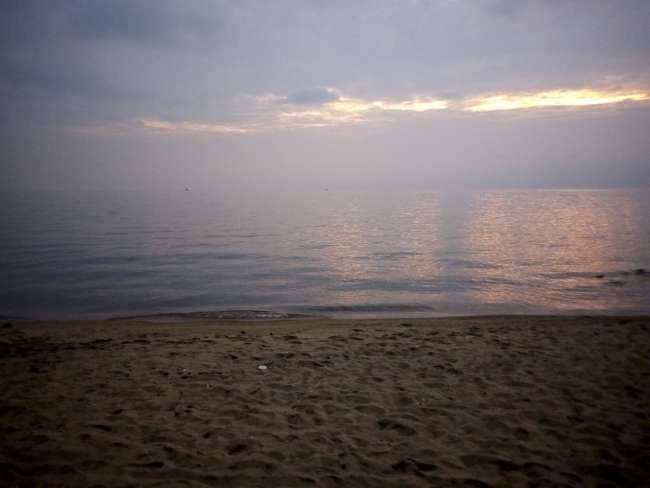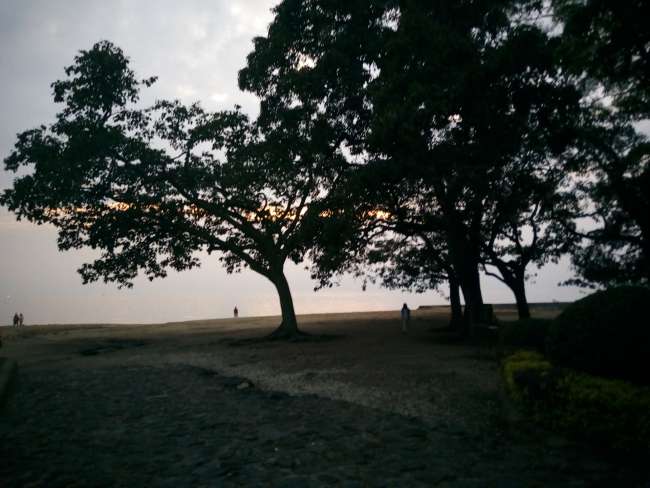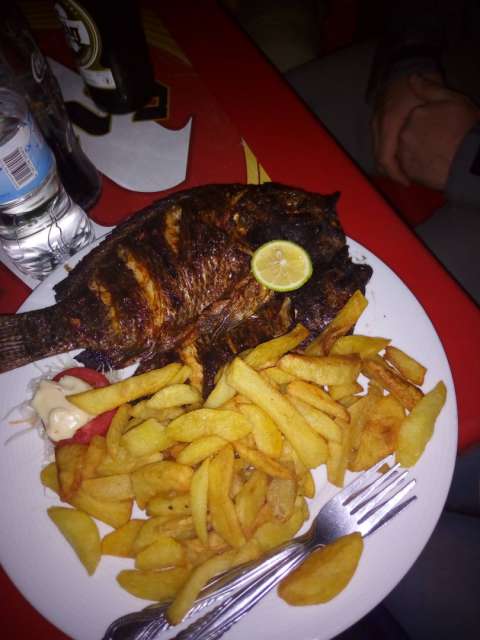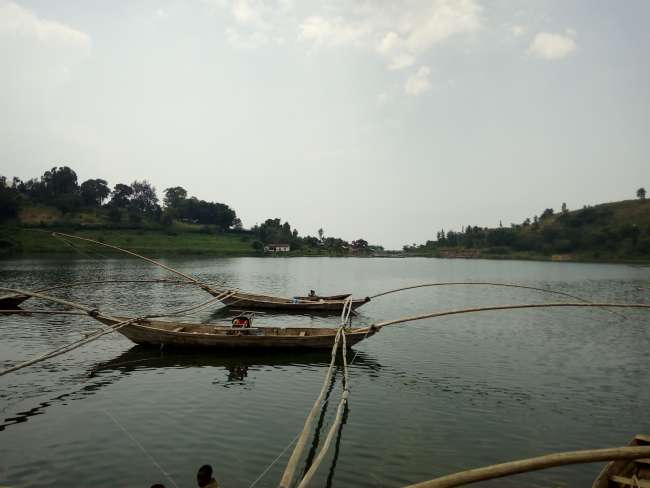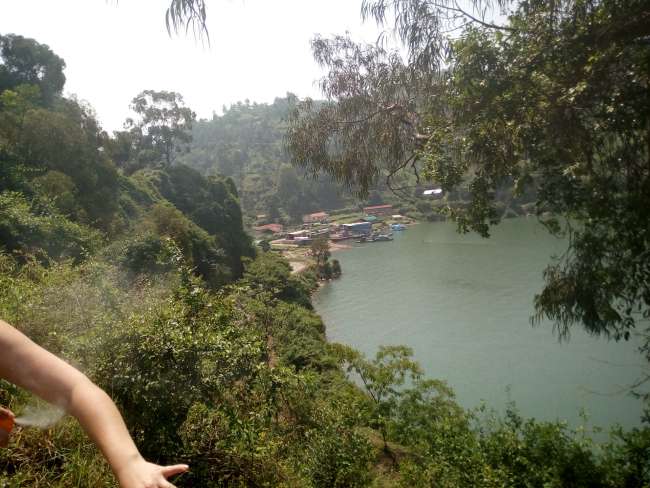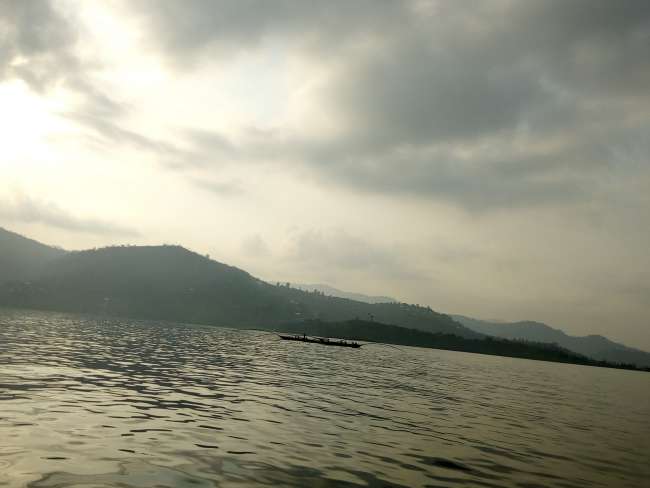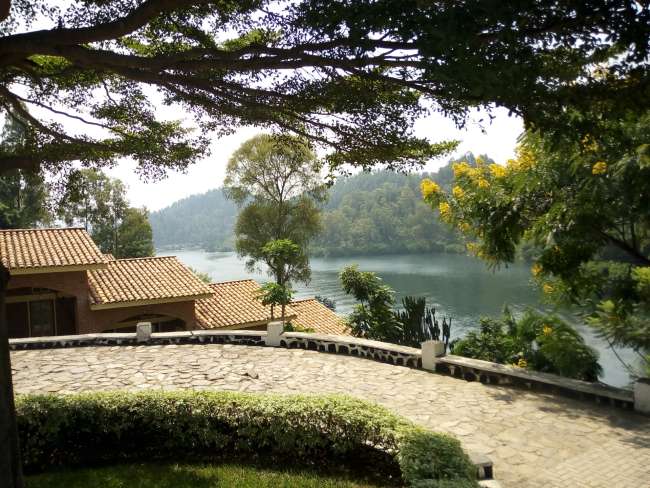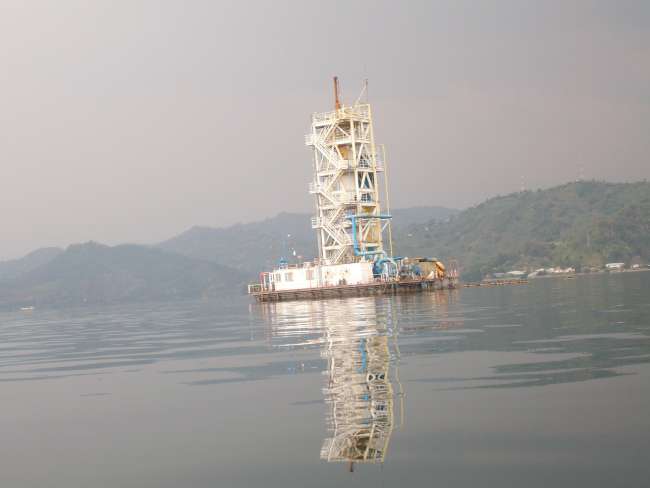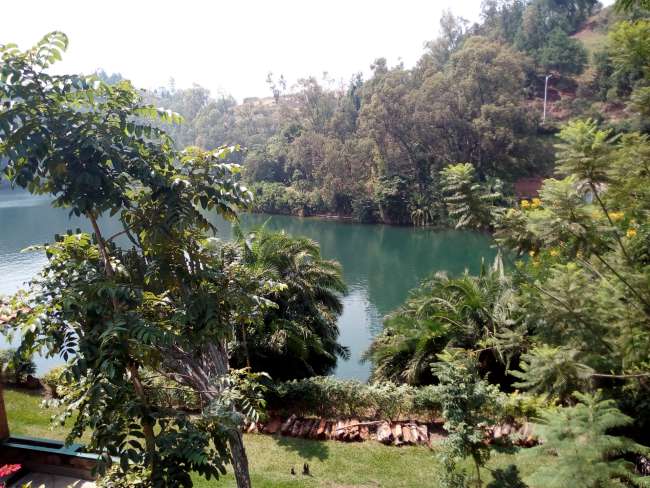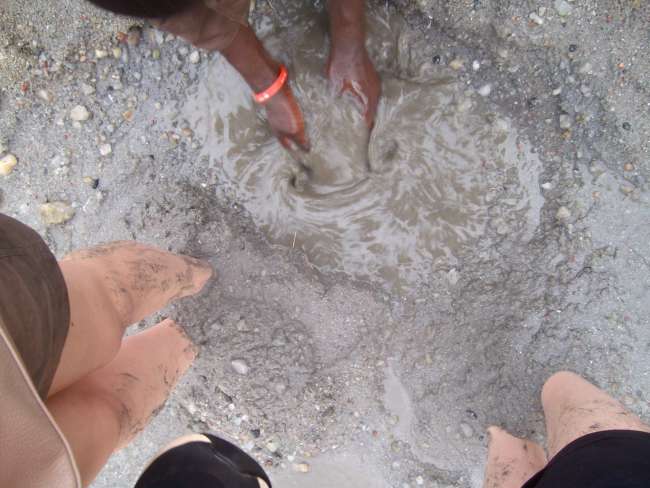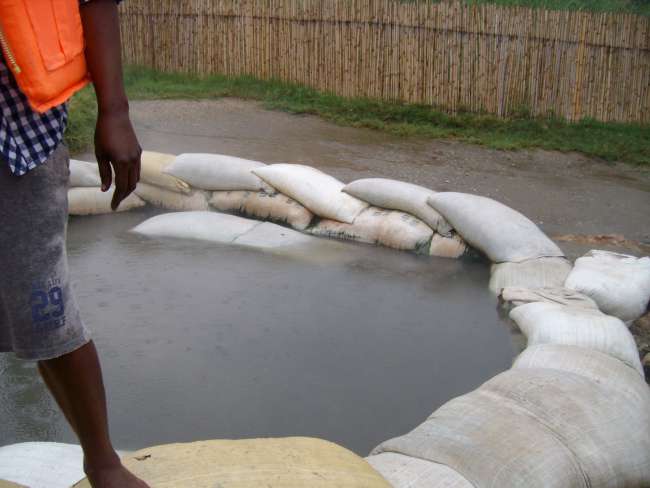Trip to Lake Kivu
ተሓቲሙ: 14.02.2017
ንዜና ሳብስክራይብ ግበሩ
On Friday we embarked on a journey to Lake Kivu.
The lake forms a large part of the border between Rwanda and the Congo, but the Rwandan side is safe, while traveling to the Congo is strongly discouraged.
On Friday morning, we got on a bus that first went to Muhanga. Muhanga is about 2 hours away from Huye, the city where I live.
From there, we had the opportunity to transfer to a bus heading towards the lake.
When we arrived in Muhanga, it was pouring rain and there was unfortunately not much shelter available. On top of that, we all needed to use the bathroom and asked the ticket seller for a toilet. The toilet we had to pay 100RWF for would probably never be used by anyone in Germany. The three squalid toilet cabins emitted such a stench that you would have wanted to run out backward. But there's no other choice when you have to use the bathroom and there are no other options, so you just have to tough it out. I don't think I will ever get used to these toilets here. It makes you appreciate the normal toilet in our accommodation a thousand times more.
After surviving the bathroom trip, we then headed to the bus. We had bought tickets to Rubavu, a city located in the northern part of the lake, very close to the border with Goma (Congo). We were on the road for about 4 hours until we arrived. Since we had already inquired about accommodations in our travel guides, it was not difficult for us to find a cheap and decent hostel.
The hostel was run by nuns and cost 10,000 RWF for two people. For local standards, there was nothing to complain about, unless you have something against cold water when showering.
After settling everything at the hostel, we dropped off our luggage and walked towards the lake. It was about a 10-minute walk from our hostel to the lake.
When we arrived at the lake, we were just in time to witness the sunset.
The lake had a beautiful sandy beach. Since it was very foggy, it was hardly possible to see the other shore of the lake, so it almost felt like being at the sea.
After sitting by the lakeshore for a good hour and listening to the water, we looked for a hotel where we could have dinner.
Exhausted from the journey and all the impressions, we fell into bed.
Saturday was planned as a hiking day. We knew that the Kongo Trail would begin somewhere in the city, but finding it was not as easy as expected. The locals didn't really know the way we were looking for. So we just started walking along the lake, eventually the road led up a hill and we passed through several small villages where, of course, we were an attraction. Never before in the time I've been in Africa have I heard the word 'Muzungu' (white) so often. Children ran after us in droves and begged for money. But aside from that, it was a beautiful and interesting experience to be walking through the small villages on foot. Just when we thought we should turn back because we didn't expect to be on the right path, we saw a sign indicating the Kongo Trail. After a 2-hour walk, we arrived in a small town where a large brewery is located. In advance, acquaintances told us that it might be possible to take a boat from Rubavu to Gisenyi. As luck would have it, we were exactly in the place where this boat would depart on Sunday morning, so we knew where we had to go Sunday morning.
Johanna and I then took a bus back to the city we started from, while the other four continued walking.
When we arrived in the city, Johanna and I ended up at a beach bar and treated ourselves to some food and drinks. There were boats and people going on boat tours passing by the beach.
Of course, one of them came to our table. At first, Johanna and I wanted to send him away immediately, but then we thought we could at least hear what he had to offer.
In the end, after the meal, we quickly took motorcycles back home to change into our bikinis. Once we arrived at the lake again, we decided to go on the boat trip, which turned out to be the best decision. We paid 25,000RWF, or a little over 30 euros, for a 3-hour boat trip.
First, we sailed out onto the lake, where the helmsman told us that the Congo would begin several hundred meters away.
Then we passed two methane drilling islands, but as laymen, there wasn't much for us to see.
When we reached the hot springs, it started pouring rain. We sat on the boat completely soaked and initially considered turning around, but luckily we continued.
When we arrived at the shore, our captain took us to a hot spring that was reserved for men only. We had to walk on a slippery muddy path to reach the spring for women. Hot, bubbling water emerged from various spots on the ground. It was fascinating to see such a natural spectacle with my own eyes. The owners of the spring had created a kind of pool where they let hot water from the springs flow in.
First, our feet were buried in the hot sand, and then we received a foot massage. Johanna declined this graciously and jumped into the pool. However, the water was so hot for her that she could hardly put her feet in. After some consideration, I also stepped into the pool with her. After the cold rain on the boat, we were really cold, so a hot spring was just what we needed. While lying in the pool, we received a full body massage - it almost felt like we were queens.
I will of course attach pictures so you can see what I'm talking about.
These hot springs were definitely one of the most amazing and impressive experiences of my life so far!
The return journey was similar to the outward journey. In the evening, we arranged to meet the four others at the bar to end the evening together and have a cozy meal.
Johanna and I ordered a talapia (perch). I have never eaten such a delicious and juicy fish before. At first, it felt a bit strange that the fish was still whole and you had to pick the meat out between the bones, but that definitely didn't detract from the taste.
After the meal, we also collapsed into bed and tried to sleep early because the boat we wanted to take to Gisenyi was already leaving at 7 o'clock.
The alarm went off at 5:30 a.m., so that we would arrive at the boat shortly after six o'clock, as we didn't know exactly how to get tickets.
So we all took a motorcycle and drove along the lake during sunrise to the small town.
When we arrived there, the boat was already waiting and being loaded. It left almost on time at seven. Of course, the boat was crowded, like almost all vehicles here, but the ride was still comfortable. It was nice to be on a quieter mode of transport compared to the buses that speed through the curves at insane speeds.
After a 3-hour boat ride, we arrived in Gisenyi and followed the tip to go to Hotel Bethany. The view we had from there was fantastic. The hotel is very upscale and costs about $40 per night for a double room, which is still not much.
We sat down in the restaurant and refreshed ourselves, swearing that we would come here again and stay longer than just for a meal.
After dinner, Matthias and Lena jumped into the lake and went for a swim. The water is pleasantly warm.
At two o'clock, we started our journey back to Muhanga. The bus ride took about 2 hours. When we arrived, we tried to find a bus connection that would take us to Huye, but there was none.
The bus station was crowded with people who were all returning to work after the weekend with their families. So the only option left was to take a taxi, which cost 40,000 RWF for the 1 ½ hour drive, or about 45 €. But you can't really complain about that either. The ride was comfortable because the bus driver from Gisenyi to Muhanga was driving ridiculously recklessly, so it was good to sit in a car with a driver who actually followed traffic rules for a change.
Tired and exhausted, but with many great experiences and impressions, we arrived back at our accommodation here at 6 p.m.
The trip was really worth it.
ንዜና ሳብስክራይብ ግበሩ
መልሲ (1)
Thomas
Super Bericht, lesenswert und interessant, bitte weiter so! 
